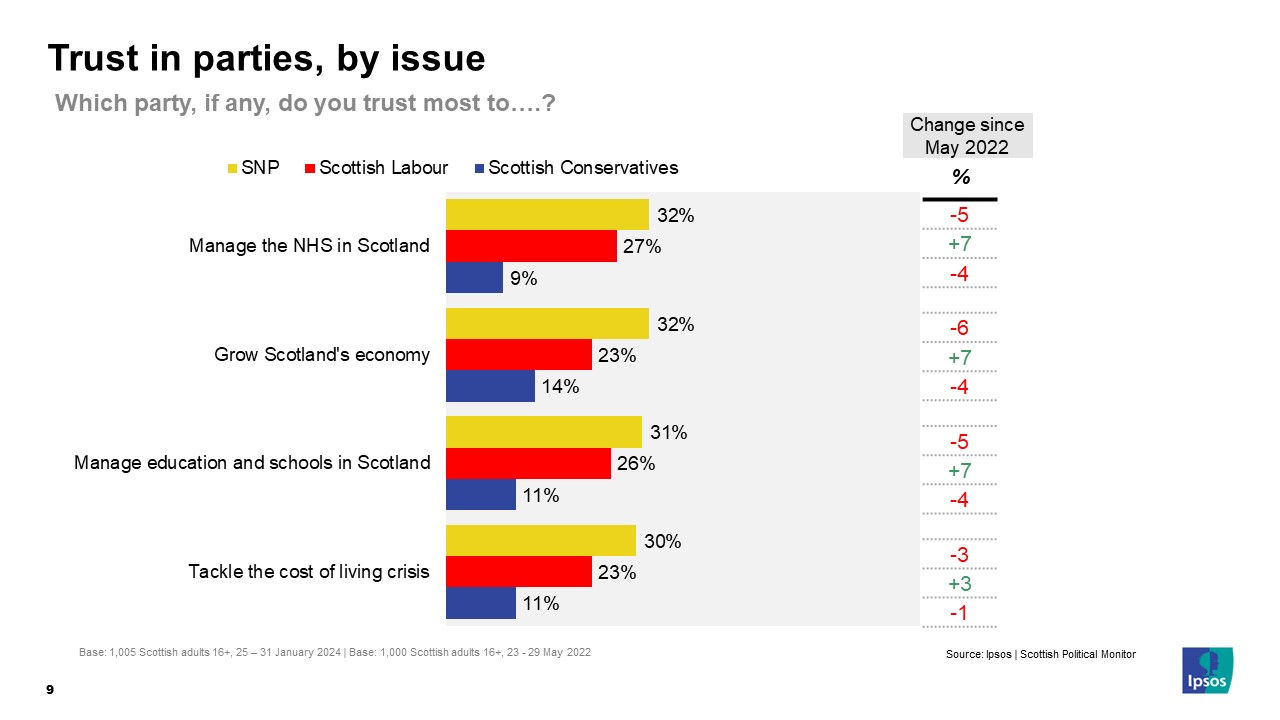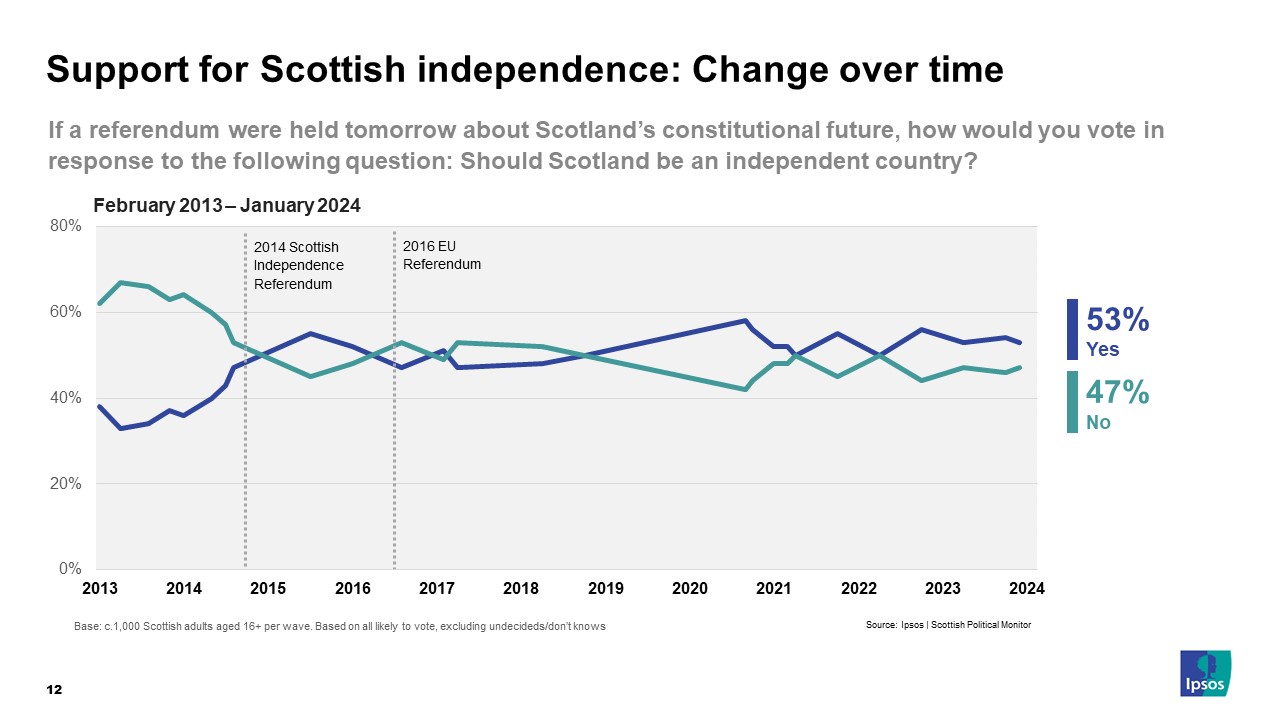SNP still lead in Scotland but Labour are narrowing the gap
Ipsos’ Scottish Political Monitor, run in partnership with STV News, finds:
- The SNP leads Labour in Scotland by 7 points on Westminster General Election voting intention.
- Although the SNP remains the party most trusted by the Scottish public, trust in Scottish Labour has increased across a range of issues, including the NHS and the economy.
- Support for Scottish independence is at a similar level to our last poll in November 2023, with Yes slightly ahead (53%).
General Election voting intention
The SNP remain ahead on General Election voting intention, with a lead of 7 points over Labour. However, this is down from a 12-point lead in May 2023 and a 10-point lead in November 2023. Voter preferences are broadly similar to Ipsos’ previous poll in November 2023, with the SNP on 39% (-1 since November), Labour on 32% (+2), the Conservatives on 14% (-1), the Liberal Democrats on 6% (unchanged), the Green Party on 4% (+1) and 4% supporting other parties or candidates (-1).
Scottish Parliament voting intention
The SNP have a 9-point lead over Labour on Scottish Parliament constituency voting intention, down from a 14-point lead in May 2023 (+12 in November 2023). Again, voter preferences for the Holyrood constituency vote are broadly similar to November, with the SNP on 39% (unchanged), Labour on 30% (+3), the Conservatives on 14% (-1), the Liberal Democrats on 7% (-1), the Green Party on 6% (+2) and other parties and candidates at 5% (-1).
The SNP lead Labour by just 2 points on regional list voting intention, down from a 7-point lead in November 2023. Headline voting intention figures estimate the SNP gaining 33% (unchanged), Labour on 31% (+5), the Conservatives on 13% (-2), the Green Party on 11% (+1), the Liberal Democrats on 7% (-1) and other parties and candidates on 5% (-2).
Trust in the parties
After more than 16 years in government, the SNP remains the most trusted party across a range of issues. However, Labour has narrowed the gap on all four issues asked about in our poll.
- 32% trust the SNP most to manage the NHS in Scotland, while 27% trust Labour most on this issue (a rise of 7 points in the proportion choosing Labour since May 2022).
- 32% trust the SNP most to grow Scotland’s economy, while 23% trust Labour most on this issue (+7 points).
- 31% trust the SNP most to manage education and schools in Scotland, while 26% trust Labour most on this issue (+7 points).
- 30% trust the SNP most to tackle the cost of living crisis, while 23% trust Labour most on this issue (+3 points).

A significant minority of those who voted Conservative at the 2019 General Election now say that they trust Labour most on these policy issues: 31% of Conservative supporters say they trust Labour most to manage the NHS in Scotland, 25% say the same on managing education and schools and 23% on growing the economy.
Scottish Independence
The poll shows a small lead for Yes. Among those likely to vote either Yes or No in an immediate referendum, 53% say they would vote Yes and 47% No.

Emily Gray, Managing Director of Ipsos in Scotland, commented:
These results underline that while the Labour Party is making considerable headway in Scotland, the party’s leadership should not be complacent about the SNP as an electoral force. Humza Yousaf’s party still has a lead on voting intention for both Westminster and Holyrood elections and is the party that the Scottish public trust most to manage the NHS, the economy, education and the cost of living crisis. The direction of travel will worry the SNP, as Labour has been gaining ground across a range of policy issues while trust in the SNP has been on the wane. Given the profile of marginal seats in Scotland, even small changes in vote share can make a big difference to the final result – which means there is still much uncertainty for the parties at this point in an election year.
Technical Note
- Ipsos interviewed a representative sample of 1,005 adults aged 16+ across Scotland.
- Interviews were conducted by telephone from 25 – 31 January 2024.
- Data are weighted to the profile of the population.
- Where results do not sum to 100%, this may be due to computer rounding, multiple responses, or the exclusion of “don’t know” categories.
- All polls are subject to a wide range of potential sources of error. On the basis of the historical record of the polls at recent general elections, there is a 9 in 10 chance that the true value of a party’s support lies within 4 points of the estimates provided by this poll, and a 2 in 3 chance that they lie within 2 points. This is especially important to keep in mind when calculating party lead figures.



